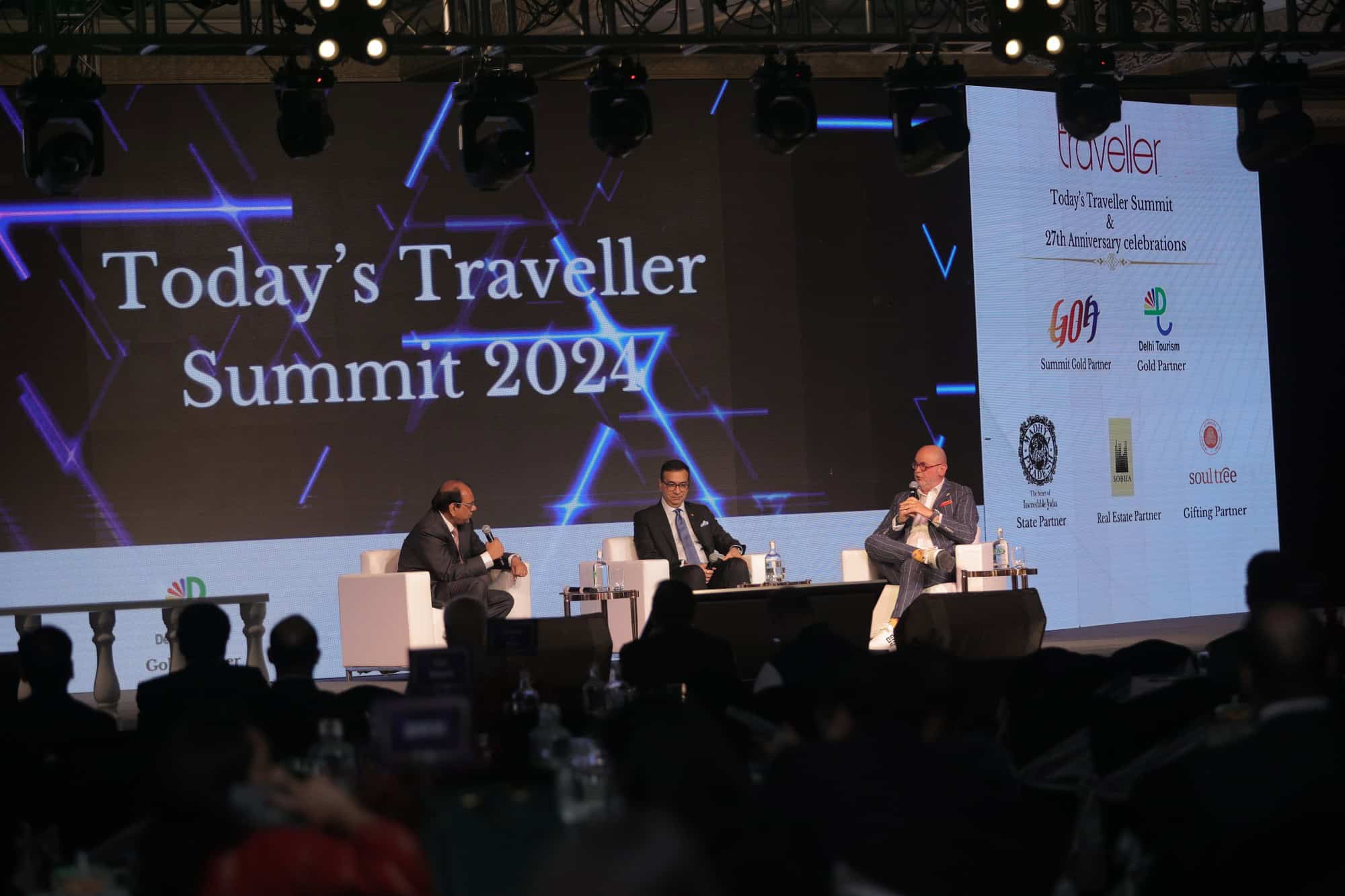The Today’s Traveller Summit and Awards, held on August 23, 2024, at Durbar Hall, Taj Palace, New Delhi, commemorated its 27th anniversary with a powerful discussion on “Building Brand Loyalty: Driving Growth in a Competitive Market.”
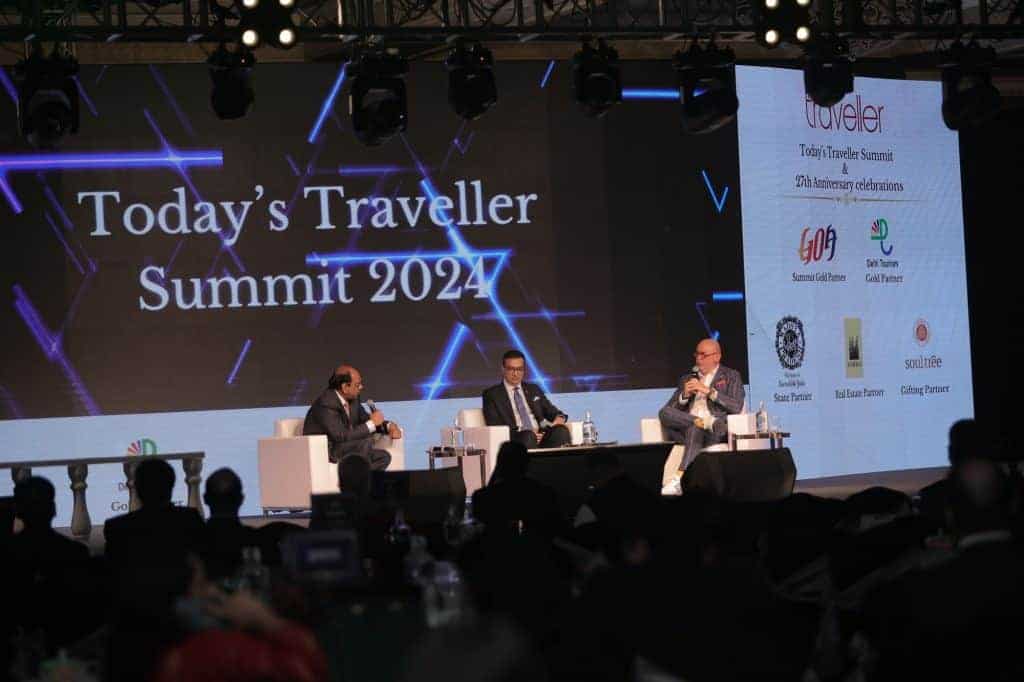
This engaging session on what drives brand loyalty featured Dimitris Manikis, President, EMEA, Wyndham; and Parveen Chander Kumar, Executive Vice President – Sales & Marketing, Indian Hotels Company Limited (IHCL), moderated by Sudhir Gupta, Chief Executive of TLC DigiTech Pvt Ltd.
The session at Today’s Traveller Summit 2024 emphasized the role of loyalty programs in solidifying brand loyalty and enhancing customer experiences.
The value of loyalty in today’s market
Setting the stage, moderator Sudhir Gupta highlighted the immense membership growth in loyalty programs across leading hospitality brands, from Marriott’s 210 million members to Wyndham’s 110 million, and Accor and Hyatt following closely. “Why are loyalty programs so critical to building brand loyalty today?” he asked, inviting a dialogue into the role loyalty plays in customer engagement.
Parveen Chander opened by stressing that loyalty programs are no longer a luxury but a necessity in today’s hospitality landscape. “Loyalty programs are not just about points and discounts anymore; they provide a gateway to understanding and managing the customer relationship. If you don’t own the customer data, the competition will.”
Sharing an anecdote from his recent U.S. trip, he noted how even luxury retail stores aggressively seek customer data, demonstrating how data collection has become central to customer engagement across industries.
According to Parveen, “The data we gather allows us to enhance customer life cycle management, run AI models, and personalise engagements. This trend is here to stay, and as India’s hospitality sector becomes more organized, loyalty will only mature further.”
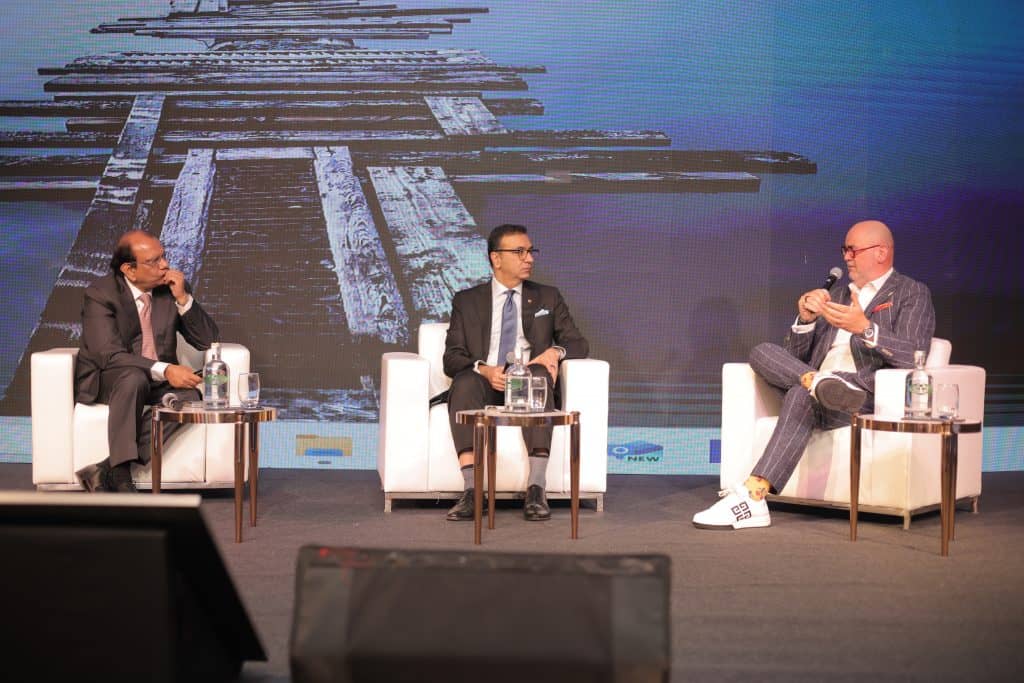
Community and belonging: Loyalty beyond numbers
Sharing his thoughts, Dimitris Manikis stressed that loyalty programs are all about creating a sense of community. “What is a loyalty program, if not a community? At Wyndham, we aim to build an ecosystem where people feel they belong. Loyalty only matters if people are actively using it,” he noted.
Despite staggering statistics of billions of loyalty memberships globally, Manikis questioned the true engagement level. “How many members are part of our community? How many respond to our marketing and share their data willingly? Without meaningful engagement, loyalty programs are a waste of time, money, and resources.”
The dialogue underscored a critical point: loyalty programs are invaluable tools for collecting customer data, yet they must translate this data into actionable insights. Both Parveen and Dimitris agreed that loyalty extends beyond a transactional relationship, with brands needing to understand customer needs and preferences intimately. “Loyalty programs have the power to turn data into brand loyalty and engagement,” Parveen said, highlighting the long-term benefits for companies that prioritise customer relationships over short-term gains.
Beyond Points: How hospitality leaders turn Loyalty into lasting connections
Dimitris humorously recounted, “My kids constantly ask for my points to travel. Loyalty points make you a hero at home!” He pointed out that loyalty points have become part of everyday life, with consumers earning points on everything from grocery shopping to online streaming. “If we, as a hospitality brand, weren’t part of this game, we’d miss a huge opportunity to use data effectively, because every other company, not just hotels, is targeting the same customer.”
Following this line of thought, Sudhir Gupta posed a question to Dimitris Manikis: “Would your kids have the patience to keep earning points for meaningful rewards if they didn’t have you to cover the trips?”
Dimitris responded, “They would, and here’s why—they love finding bargains and travelling smart, in a way that doesn’t hit their limited budget. They’re so used to earning points through various daily interactions, but the key is simplicity. The process must be straightforward, and they’re highly sensitive about data protection. For young travellers, data isn’t just personal—it’s about making sure it’s secure and won’t end up being misused. They value transparency and safety with their information.”
Gupta continued the thread, pointing out that young travellers not only understand loyalty programs but are driven by value beyond points alone. “Do you think loyalty programs are evolving to address this need for greater value and unique experiences?” he asked.
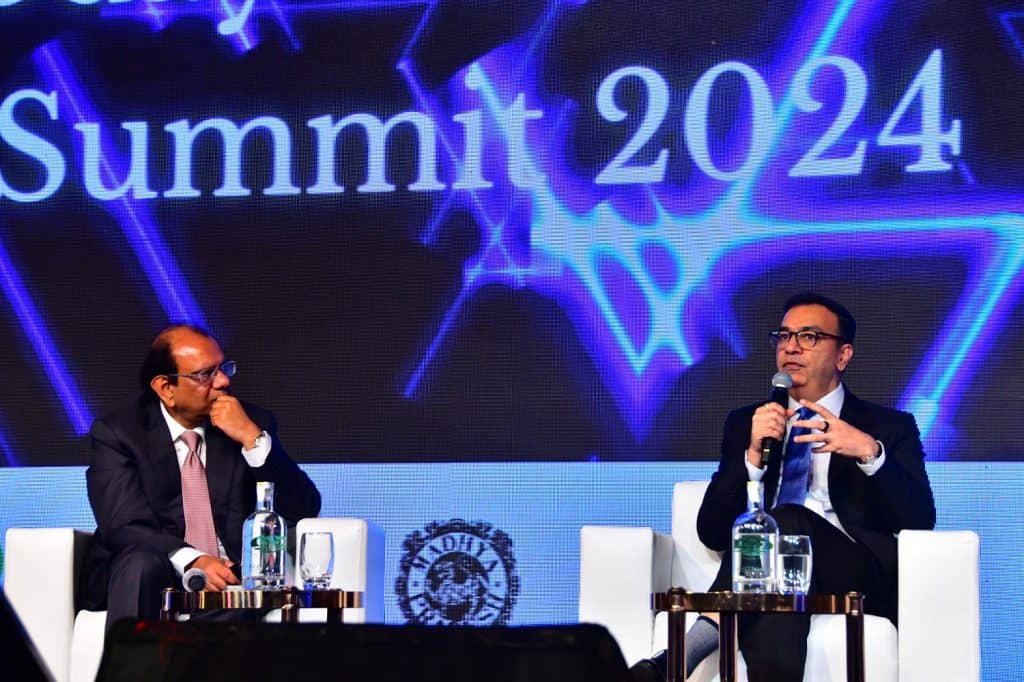
Parveen Chander expanded on this by explaining how loyalty programs have evolved from basic discounts to personalized experiences. “About a decade ago, loyalty was all about points and discounts. Then came a focus on added value—late checkouts, and faster check-ins. Now, loyalty programs are moving to a third dimension: creating a sense of community. For instance, our Platinum and Chamber members receive unique engagement opportunities, like exclusive event invitations. It’s becoming aspirational; people want to be part of these exclusive circles. Today, recognition is often more important than points. Sitting in an aircraft and being acknowledged or having a personalized greeting at a hotel gives a greater sense of belonging.”
Dimitris wholeheartedly agreed, emphasizing the universal appeal of recognition. “No matter where we are in life, we all have an ego. When a flight attendant says, ‘Welcome back, Mr. Manikis,’ it might seem trivial, but it resonates. Or when you check into a hotel and they remember your pillow preference—it’s a small thing, but it makes an impact. If you’re a Titanium member and don’t receive the recognition you deserve, it can backfire. Recognition is a loyalty program’s most powerful tool; it’s what keeps customers coming back.”
Manikis added that loyalty programs work because they tap into people’s desire for comfort and familiarity. “Humans are creatures of happiness. We may love new experiences, but there’s comfort in returning to a place where you’re recognized and valued. In London, I have five favourite restaurants. Not because I don’t want to try new places, but because they know me, my preferences, and my time constraints. Loyalty programs play on this principle, making each return visit feel like a warm welcome home,” he concluded.
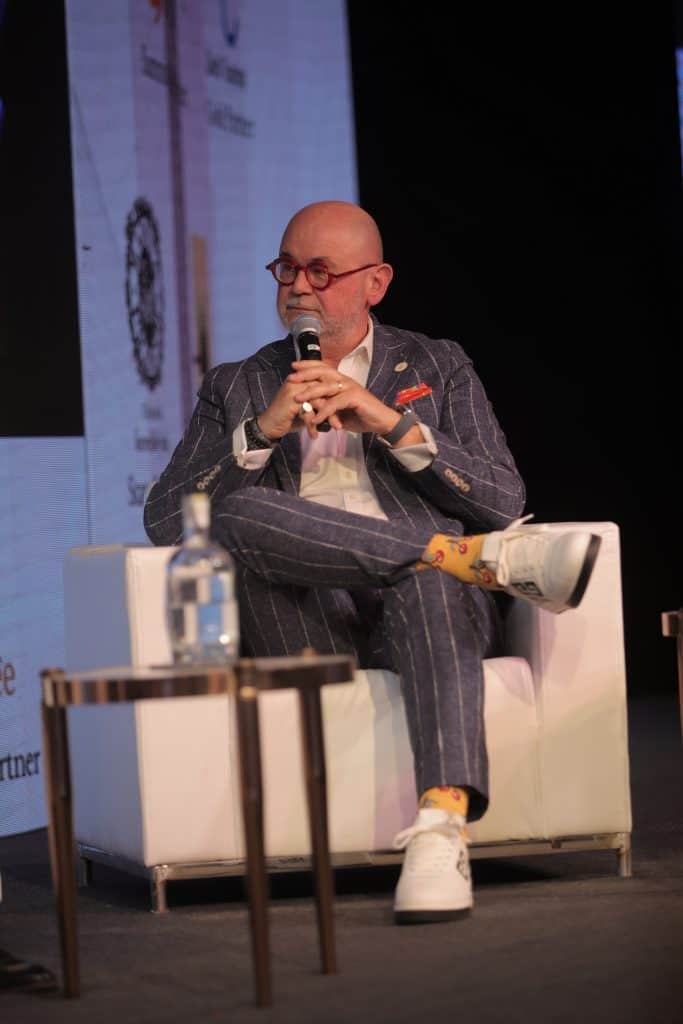
Differentiation and value in modern Loyalty programs
As the discussion progressed, Sudhir Gupta raised an essential question: With so many loyalty programs available, are companies doing enough to differentiate their offerings in a way that truly stands out to customers?
“We’re seeing a lot of hotels focusing on experiences and recognition, but how are we using these loyalty programs to promote real brand differentiation?” Gupta asked.
Parveen Chander responded by explaining how differentiation often occurs within tiers of loyalty programs rather than across brands. “We don’t focus on brand-specific differentiation in the traditional sense; instead, we look at adding value through personalized tiers within the program. Many customers interact with multiple brands, so we offer unique plans based on frequency and customer preferences,” he said.
Chander also emphasized the importance of tailoring experiences for different customer segments, such as business travellers and holidaymakers. “It’s about making each interaction feel personal,” he explained. “With so many daily messages cluttering our phones, no one appreciates their space being invaded. Consent is vital, and that’s why AI-driven personalisation is essential to ensure messages are both relevant and welcome.”
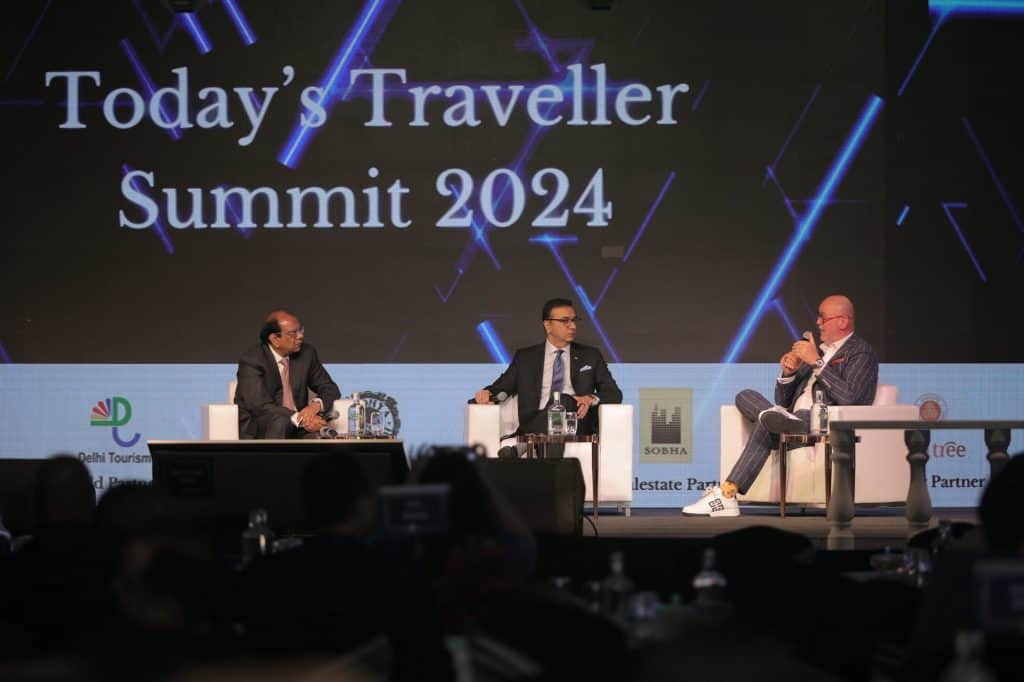
Earning and Burning: The balance that defines success
Dimitris Manikis delved into a crucial aspect of loyalty programs: the ability to “burn” points across a broad range of categories. “The secret to a successful program is not just in how you earn points but where you can burn them. It’s about giving customers the freedom to use points on what matters to them, be it airlines, car rentals, or even shopping at Zara or H&M,” he shared.
“Look at Amex; they allow you to earn on spending and then use points on various rewards like Marks & Spencer or Amazon. The burn side of loyalty is what makes people see the true value because they’re not limited—they can decide where and how they redeem their rewards,” added Dimitris
A unique Loyalty ecosystem: Tata’s approach
Parveen Chander described how IHCL benefits from being part of Tata Group’s comprehensive loyalty ecosystem. “Our loyalty program is linked with Tata’s broader ecosystem, allowing customers to use points at Tata’s extensive range of brands. From grocery shopping at Big Basket to buying electronics at Croma, or even booking flights with Air India, the options are endless,” he explained.
Since its inception, this approach has successfully expanded IHCL’s reach. “We went from around 2 million members to 6.5 million in under three years. By offering access across a wide range of services, we’ve shown that loyalty programs are here to stay and will only grow stronger,” Chander said.
Leveraging Loyalty programs to drive International traffic and expansion
Turning the conversation toward the impact of India’s growing travel market, Sudhir Gupta brought attention to the rise of Indian travellers flying internationally, mentioning that with Air India’s expanded routes, the number of Indians travelling worldwide is set to increase significantly. Highlighting how American brands like Marriott expanded globally due to the demand of American travellers, Gupta asked Parveen Chander, “With Indian travellers increasingly going international, is there potential for brands like IHCL to tap into this data and build an overseas presence?”
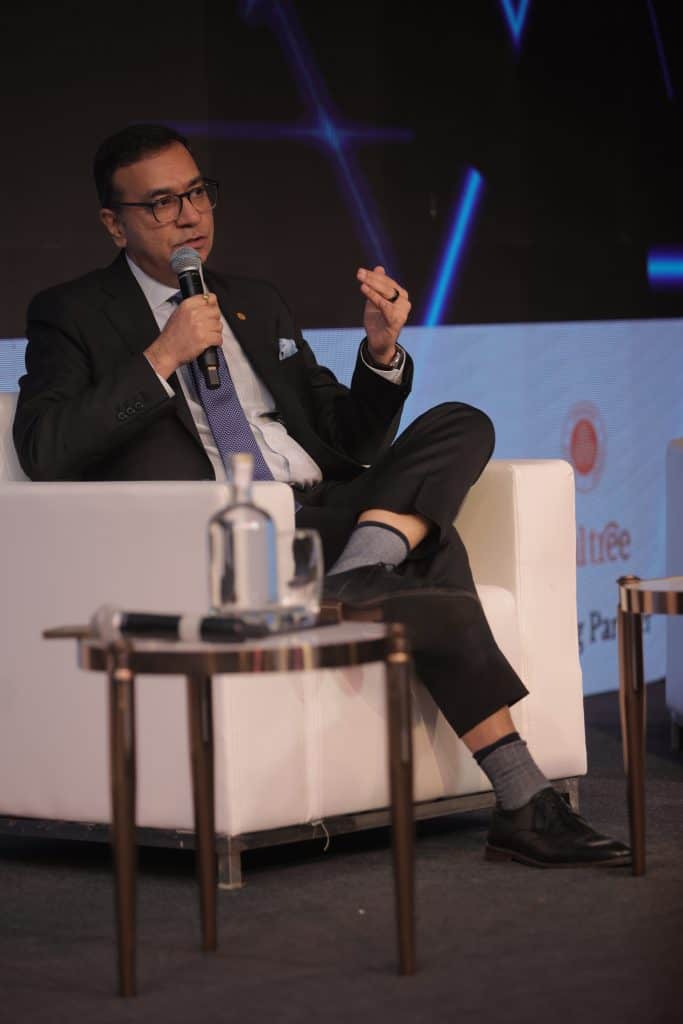
Parveen Chander acknowledged the potential, noting that most Indian travellers participate in multiple loyalty programs. “On average, travellers hold memberships with two or three levels of brand loyalty programs. For instance, many Indians have a loyalty program within India, like ours, and when travelling abroad, they’ll often join top international brands for rewards. This can be challenging for an Indian company to manage,” he explained.
IHCL’s presence in markets like the US, UK, and the Middle East helps bridge this gap, making it easier for outbound Indian travellers to stay connected to IHCL properties abroad. “We’re seeing renewed interest from international travellers who want the Taj experience when they visit India because it offers something unique that other hotels don’t,” he added.
Gupta then asked about IHCL’s plans for international expansion, especially as more Indians seek familiar brands while travelling. Parveen responded, “Our expansion plans are steady but not as aggressive. We’re opening one or two Taj hotels internationally in key cities and areas popular with the Indian diaspora. Our approach is strategic, focusing on locations where we know the demand from Indian travellers will be strong.”
The conversation highlighted IHCL’s careful approach to building a global footprint, balancing brand presence in international markets with targeted expansion to meet the needs of both Indian travellers and international guests seeking the distinct Taj experience.
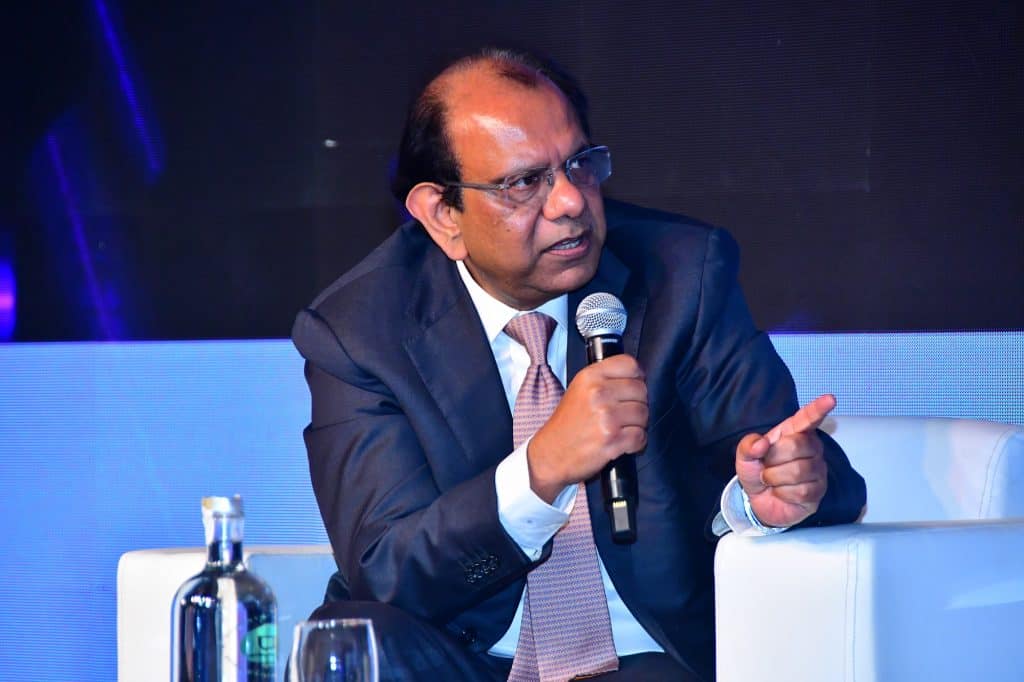
The role of technology as an enabler, not a replacement
As the conversation turned to technology’s role in hospitality, Sudhir Gupta posed a question to the panel about its impact on brand loyalty and guest experiences. “How do you see technology and data transforming loyalty programs, and what does the future hold for using these tools more effectively?”
Dimitris Manikis shared his perspective, emphasizing the importance of technology as a supportive tool rather than a replacement for human interaction. “I love technology—I own every gadget you can think of, even if I barely use them,” he joked. “But we have to be cautious. Technology is critical in our industry, but it’s not a panacea. If we constantly talk about technology taking over, we risk losing the human element that defines hospitality. No amount of AI or robots can replicate the warmth and personal touch that hospitality professionals provide.”
He recounted his experiences at Indian hotels, applauding their human-centred approach: “These teams have perfected hospitality. Technology should be an enabler, helping our workforce do more interesting tasks—not replace them. When I ask a chatbot for a restaurant recommendation, it can give me an answer, but I’ll always trust the advice of a local hotel employee because that human touch makes their recommendation ten times more valuable.”
Differentiating technology by segment and brand
Parveen Chander echoed this sentiment, noting that while technology is essential, its implementation must align with brand differentiation. “There are areas where technology is reducing manual intervention, especially in midscale and budget segments. For instance, in our upcoming brand launch, our Gateway brand, which targets Tier 2 and Tier 3 cities, we’re experimenting with e-concierges in lobbies to answer common questions and streamline processes,” he explained.
However, Parveen acknowledged that for high-end luxury, there is no substitute for one-on-one human interaction. “Even something as small as a handwritten note from housekeeping, replacing a forgotten toothpaste, makes a difference. If that same note were printed, it wouldn’t have the same personal impact. Technology can support but never replace the essence of personalized service.”
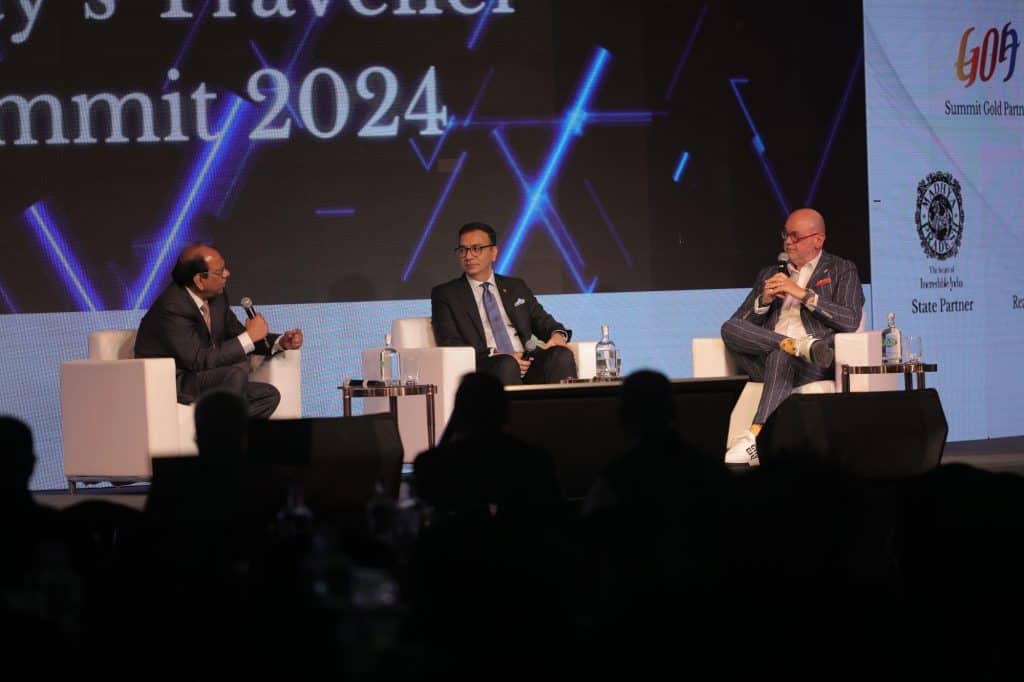
The Dual Demand: Experiences vs. Convenience
Sudhir Gupta steered the conversation toward guest expectations and customer brand loyalty, noting the younger generation’s demand for both personalised experiences and seamless convenience.
Dimitris agreed but cautioned against overemphasizing the “experience” narrative. “Not every traveller is looking for an ‘experience.’ Of the 1.4 billion people travelling this year, many prioritise ease, safety, and efficiency. When I travel for business, I want quick service, minimal interaction, and convenience,” he noted. “If I’m vacationing, I may be looking for an experience. But many travellers—truck drivers, sales reps, families—are seeking comfort and convenience, not luxury experiences. If we focus solely on experiences, we risk alienating a substantial portion of our market.”
Dimitris added that the industry should recognize the value of “comfort and convenience” in addition to experiences. “In the U.S., families load up their cars and drive across the country, staying in motels not for the ‘experience’ but for the practical amenities. A stay at a roadside motel outside Oklahoma isn’t about an experience; it’s about convenience. That’s where loyalty comes in—people appreciate reliability and value, and as an industry, we need to balance this with the experiences we offer.”
The panel agreed that the future of hospitality lies in balancing innovative technology with the irreplaceable human touch. By catering to diverse traveller needs—from those seeking enriching experiences to those prioritizing comfort and efficiency—hospitality brands can ensure they remain relevant in an ever-evolving landscape.
Read More: News
